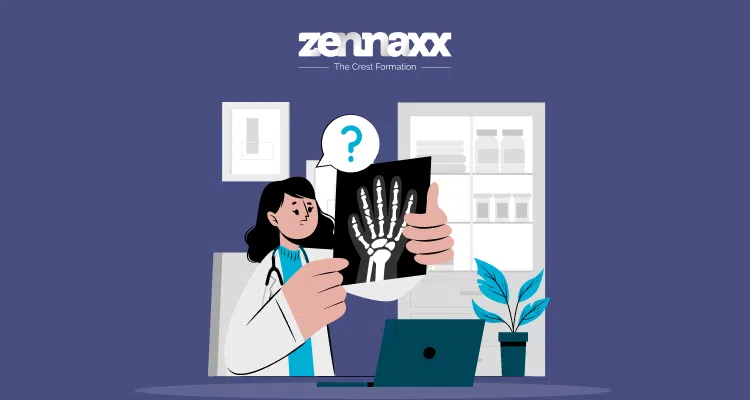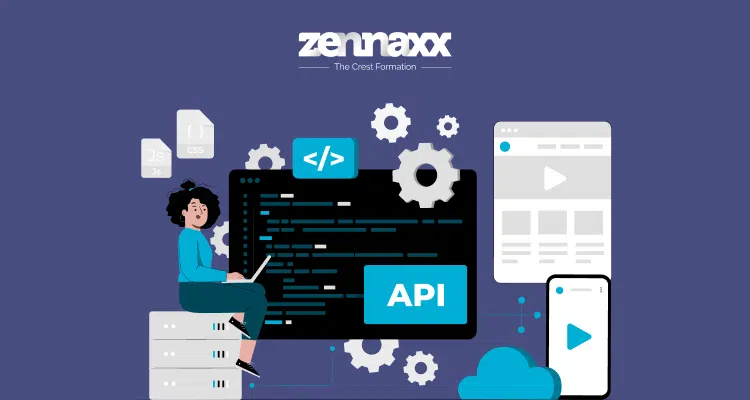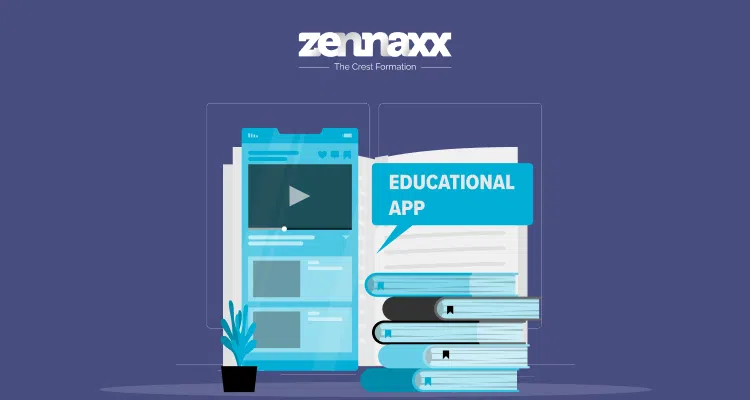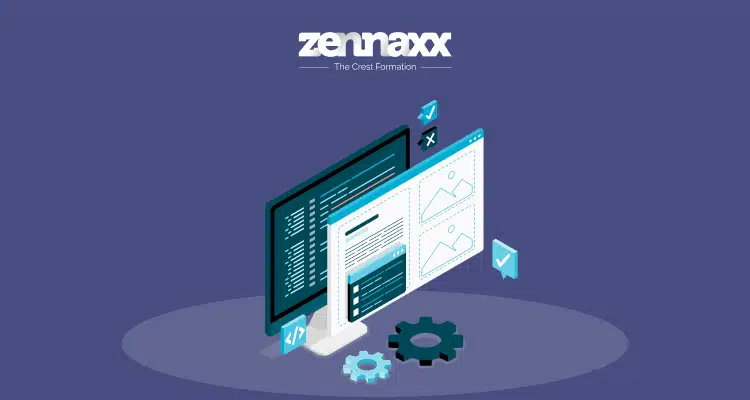1990 was the year the first web server was built, and a website existed! No, it’s not about a nostalgic ride back to the 90s but the fact that web development has come a long way.
We now have powerful web applications from static websites that can work without the internet.
However, choosing between a website vs web application becomes confusing for a business.
Websites offer better reach for businesses attracting traffic through specific keywords; web apps are a more functional asset.
Companies can leverage web apps and provide unique app-based functionality with their web core. As both have the web at their core, the confusion is apparent.
This article aims to clarify the confusion and help businesses choose what’s best for them when comparing website vs web application. Let’s first understand each of them!
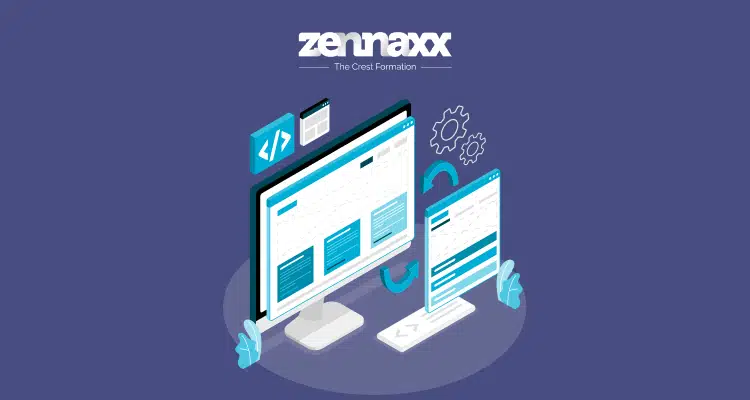
What Is a Website?
Any website is a collection of several web pages linked to a common domain name. All these web pages and the entire website data are hosted on a server.
Most website pages are HTML and include images, videos, text, and more.
Websites can be of many types. For example, there are static websites with elements that are not interactive. Then, there are single-page websites with all the content on the homepage.
Right from blogging websites to eCommerce ones, there are different types of websites that you can develop.
Types of websites
Here are some websites you can develop based on specific requirements,
1. Blogs
Blogging websites is a common feature of the current sites people develop. These websites help businesses spread awareness about their services and products among customers.
However, blogging sites are not limited to companies; everyone uses them, from individuals to freelancers.
2. NGO sites
These are non-profit websites used to spread awareness about a cause that affects many people.
Several NGO sites exist on the Internet, covering topics ranging from vaccination drives to climate change.
3. Portfolio websites
Businesses can leverage this type of website to showcase their capabilities and experience in delivering top-notch solutions.
It can be a static website with all your achievements showcased or a multi-page site with different designs and projects demonstrated.
4. Corporate websites
Corporate sites are an excellent way for companies to improve branding. Many enterprises have multiple websites and web applications.
This strategy is used to distribute tasks. For example, web apps are used for operational purposes, but corporate websites are used for branding.
5. ECommerce websites
Online stores have become rampant these days. The rise of eCommerce websites over the years has been helpful for several businesses.
It has helped brick-and-mortar businesses go digital and connect with their audience virtually.
ECommerce websites like Amazon and Etsy are a prime example of online marketplaces leveraging web development.
These are some of the website types that you can develop. However, before you create a website, there are some prerequisites that you need to know, like,
- Domain name
- Web hosting
- Website development platform
- SSL certificates for security
- Content to be placed on the website
- Website design

What Is a Web Application?
Web applications are software programs that offer the interactiveness of mobile applications for websites.
They are stored on a remote server delivered through the Internet and designed for specific tasks. Users can access a web app through browsers like Google Chrome, Mozilla Firefox, or Safari.
Web applications operate using a web and application server. Another important aspect of web applications is a database.
Whenever a user requests data, the web server manages the request, and the app server completes the data request with a database storing necessary files.
While website development programming languages exist, web apps are often built with JavaScript, HTML5, and CSS.
Types of Web Applications
Some of the web app types that you can develop for your business are,
Progressive Web Apps(PWAs)
Using PWAs, you can combine the best of web and mobile apps! Yes, it looks like a website but functions like an app.
This allows developers to create an installable app that users can use on their smartphones. With offline capabilities and other advanced features, developing PWAs can benefit your business.
Single Page Applications(SPAs)
You can run SPAs on a browser without reloading the entire page. Take an example of an email app that allows you to access your inbox directly through SPA.
This is why apps like GMAIL are faster and provide instant access to your inbox.
Multi-page Applications(MPAs)
Enterprises may need more than one page to place their content, which is where MPAs come into play.
These online apps with multiple pages reload the entire page if a user switches to a different page.
ECommerce Applications
eCommerce web apps provide a platform for businesses to connect with users and allow online purchases.
They are multi-layered web apps with several components enabling advanced features. E-commerce web apps like Shopify also allow other businesses to build online stores.
Social Media Web Apps
Social media web applications are among the most used types. From Facebook to Instagram, many giant social media web apps are active on the internet.
Many of these social media web apps have now transformed into fully native mobile applications.
Now that you know what a website and web application are, let’s understand the key differences between both.
The Differences Between Websites and Web Applications
Both websites and web applications have several similarities. For example, both need a browser for accessibility.
While web applications do bring the functionality of a mobile app for a website for the users, there are many differences.
Functional Differences
A fundamental difference between any website and a web app is its function.
While websites offer information regarding the user’s searches and improve brand awareness, web applications allow businesses to conduct specific operations.
So, in a way, websites act as a branding tool for several businesses while web apps help them earn bread and butter.
This functional difference can vary based on the type of websites and web applications you use.
Complexity of Development
Web applications are far more complex to develop than websites. Websites, even though they have dynamic content, are more straightforward in terms of the development process and its intricacies.
At the same time, web applications require varying database capabilities to cope with multi-load requirements.
With web applications’ multi-page approach and the need to offer direct access to content through the browser, the development process becomes complex.
Accessibility Factor
In terms of accessibility, a website is best, as anyone using the Internet can access the site. A web application is exclusive for each user.
The reason is simple: A web app needs users to verify their identity before accessing services. Web apps often provide personalized services, so each user needs authentication.
Websites, on the other hand, provide complete access to their content to registered or non-registered users.
Take a social media web app, for example. Your personal feed is exclusive to your profile, and that is why you need to verify your identity before accessing any content.
Now that you understand the difference between websites and web applications let’s discuss which is right for your business.
Ready to Get Started?
Reach out to our expert team today to create a tailored solution that meets your unique needs. Contact us now to start your project!
Website Vs. Web Application: Which Is Right for My Business?
Choosing the right option for your business between a website and a web app can be tricky.
Both offer unique benefits, but choosing the best option depends on your specific needs. Let’s first understand why you should choose a website.
Why Should I Develop a Website?
A website is more than just a collection of pages hosted on a server. It’s a great way to build social proof for your business and create a platform for customers to connect for support.
Create Social Proof
Websites can serve as your digital business card. You can build sites to showcase testimonials, reviews, and case studies.
It allows you to establish credibility and build trust with potential customers.
Social proof is a powerful tool if you can articulate your expertise and work experience through engaging websites.
Showcase Product or Service Offerings
Websites are the best way to showcase all of your products and services and communicate your value proposition.
Leverage compelling content, high-quality images, and videos on your website to connect with the audience and convey a strategic message.
This helps educate customers and fosters loyalty and repeated purchases on your site.
Aid in Branding Efforts
A website can amplify your brand visibility. Take the example of wealthsimple.com, which leverages the website to convey branding messages well.
The website’s hero image, CTA, and messaging all indicate the brand voice.
The best part of this website is how it conveys the message of the brand with a human touch, ensuring that customers have an association with the company.
Provide Customer Support
Adding customer support options, such as FAQs, live chat, and contact forms, can improve your business’s user experience.
You can create websites with specific customer support features, which ensures that your customers find answers to their questions easily.
Want to Automate Your Business Process With a Web App Solution?
Zennaxx, a leading software development firm in Canada, has delivered 700+ bespoke solutions spanning various industries.
Why Should I Develop a Web Application?
Developing a web app may not have the same motivations as developing a website. It is more complex than a normal website, and web apps offer so much to any business.
This is why giant companies like Meta and Amazon rely on web applications.
Data Manipulation Benefits
If you have an on-demand business like ride-hailing, hotel booking, or even a content management operation, web apps are your best bet.
They allow your users to dynamically input, modify, and retrieve data, offering an interactive and immersive experience.
Authentication Requirements
Web apps come with the benefit of user authentication, which is crucial for several businesses, including banks and fintechs.
Another category of companies that need user authentication is social media apps that deal with UGC(user-generated content)
Healthcare startups and businesses, too, need web apps to ensure secure access to patient data. Web applications ensure that only intended users can access specific data.
This means better data security and compliance with data regulation standards like HIPAA, GDPR, and PCI DSS.
Reduced Cost and Approvals
Web apps are your gateway to optimal costs, reduced efforts, and a hassle-free mobile experience.
If you want to provide a native mobile experience, you can’t use websites and must spend heavily on developing apps.
Further, you need to get approvals from app stores like Google Play Store and Apple App Store before publishing the app.
When applications simply run on browsers with all the functionalities of an application and are developed at almost half the cost.
It also requires less time and removes the need for approval.
Better Update Controls
Web apps allow you to deliver updates to users quickly in real time. This means there are no delays to essential security patches, ensuring no data breaches.
Plus, you have better control over what updates to prioritize with web app development.
Final Thoughts
Deciding what to develop between a website vs. a web application depends on several factors, including business objectives, type of audience, and specific operational needs.
While creating a website can amplify branding and act as a key interaction point for your customers, web apps can be a great platform to offer products and services.
In the end, what to choose will depend on your organization’s ultimate goal. This is why analyzing your requirements and identifying the objective becomes vital.
This is where Zennaxx can help. Get in touch with our experts and understand what is best for your business—a website or a web app!


